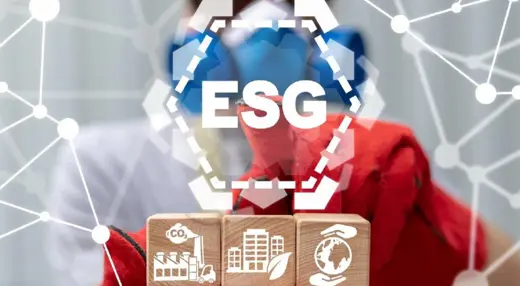This unprecedented surge of global heat shattered temperature records in the early days of July, marking them as likely candidates for the hottest days in modern history. Forecasters are warning of a prolonged period of extraordinary warmth, driven by rising greenhouse gas emissions and the return of the El Niño weather pattern, with global temperatures expected to surpass this year's peaks in the coming year [1].
Amidst the harsh realities of our climate-stricken future, carbon neutrality has emerged as a buzzword plastered across consumer goods, corporate marketing materials, and government mandates as a seemingly flawed attempt to offset environmental harm. Carbon neutrality is loosely defined as achieving a balance between emitting greenhouse gases and absorbing them from the atmosphere via carbon sinks [2]. In other words, the concept of carbon neutrality allows companies to continue emitting harmful greenhouse gases, as long as those emissions are compensated by purchasing carbon offsets, such as those obtained through tree planting initiatives.
Beyond genuine concerns facing the efficacy and reliability of carbon offsetting schemes, a study conducted by the European Commission revealed that the majority of environmental claims, including those surrounding carbon neutrality, were found to be vague, misleading, or lacking evidence, while a striking 40% were completely unsubstantiated [3] [4]. The rising tide of climate awareness has fostered a growing sense of disapproval towards this insincere approach to addressing climate issues. In response, some governments are taking action by implementing regulations that require companies to validate and verify their environmental claims. Yet, at the heart of the matter, a key question remains unanswered: Would a substantiated claim of carbon neutrality be enough to address the climate crisis [5].
According to the Climate Crisis Advisory Group, the answer is clear: carbon neutral targets alone are insufficient to avert widespread climate disasters [6]. Even if companies and governments were to establish a clear definition of the term, enforce scientific substantiation of neutrality claims, and regulate offsetting schemes to ensure their integrity, these measures would still fall short. Our current trajectory puts us on course for a 2.7°C increase above pre-industrial levels by the century's end, and with the 1.5°C target slipping out of reach, the urgency for meaningful action is quickly intensifying—but this cannot be achieved without the necessary resources and funding.
Estimates indicate that annual climate financing needs to increase sevenfold to ensure a realistic chance of achieving our 2030 climate objectives [7]. Projections indicate that by 2030, a minimum of $4.3 trillion USD in annual finance flows will be required, while the current available funding stands at approximately $665 billion USD [8]. The corporate sector's contribution to this financing is crucial, as it accounts for 20% of the funding presently deployed.
These factors underpin our house-view, which focuses on decarbonization and highlights the importance of setting scientifically based targets and developing realistic pathways to achieve zero emissions. We propose that companies adopt an internal carbon price, which assigns a monetary value to their greenhouse gas emissions. We believe this internal price should be, at minimum, aligned with the EU Emissions Trading System carbon (ETS) carbon price— a market mechanism designed to reduce emissions through a cap-and-trade approach, setting an absolute limit on annual emissions in line with the bloc's climate targets. However, the EU ETS does not fully capture all the negative externalities associated with greenhouse gas emissions; in fact, the ETS carbon price falls significantly below most estimates of the social cost of carbon, which quantifies the damages to society by each additional ton of emissions [9]. As such, we encourage companies to consider the broader implications of emissions and strive to set an internal carbon price that accounts for the true societal and environmental impact of emitting greenhouse gasses.
Finally, we propose that the vast majority of the budget generated from this internal carbon price should be strategically allocated to support decarbonization efforts, including abatement initiatives beyond the company's value chain. A smaller portion (10-20%) of the generated budget can be allocated to goodwill projects that align with the company's values. This approach illustrates that the climate crisis is not the sole challenge we face and allows companies the flexibility to address other pressing societal issues that resonate with their ethos. All in all, we believe this tactic creates tangible financial incentives for decarbonization, raises climate awareness within organizations, and has the potential to drive significant impact. In a world where warranted public skepticism towards climate claims persists, a genuine and impactful approach to addressing the climate crisis is essential.
Authors: Rasa Rejali and Gert-Jan van de Poll






